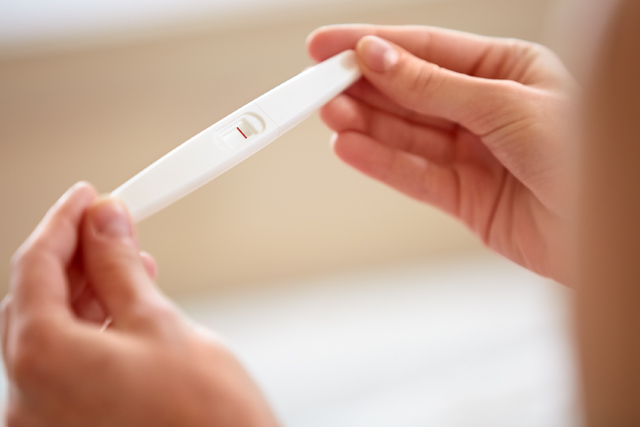Going through a period might be even worse than passing through the seven rings in Dante’s Inferno for some women. Let’s face it, we dread periods—the uninvited guest who makes that monthly visit without fail (most of the time). As much as we loathe the arrival of periods, missing a cycle is a cause for greater worry.
A normal period cycle is 25 to 40 days. Hence, you should get your period within 35 to 40 days of your first day. If it exceeds that, then you might want to get it checked. The first thought that comes to your mind when you miss your period is pregnancy. While it is definitely one of the major reasons for a missed period, there are several other reasons as well. These problems can range from diabetes to weight-related issues. It can also be due to unhealthy mental states like extreme stress and nervousness. Hence, maintaining proper and good health is the key to having a good period. But if you have missed yours, let’s take a look at the possible reasons!
Pregnancy
Pregnancy can be one of the most obvious reasons for missing a period. If you were involved in unprotected or even protected sex one or more weeks before your menstrual date, there is a possibility that you are pregnant. To check whether you are pregnant or not, you can get tests easily at nearby pharmacies and conduct the tests at home. Apart from this, you can also visit a gynecologist to get it checked.

PCOD or PCOS (polycystic ovary syndrome)
PCOS is not as rare as we think it is. At least one in ten women go through this. Eggs are released every month by the ovaries, and in women with PCOS, the eggs are not as mature as they should be. They tend to be partially mature or not mature at all. This can result in a lot of problems. This includes a delay in the menstrual cycle, no menstruation, extremely painful cramps during menstruation, or problems in pregnancy. PCOS can be cured and controlled with the help of medication. If you feel a delayed period is a regular issue, you should definitely get checked by a medical professional for polycystic ovary syndrome.

Obesity
Obesity can be one of the underlying causes of missing a period. Why does this happen? When your body mass index is more than 30, you are considered obese. When this takes place, the body automatically produces a hormone called estrogen. Oestrogen is one of the hormones that play a major role in the reproductive cycle. Hence, due to obesity, the estrogen produced will be in excess, resulting in changes in your reproductive cycle, which is not good. This hormone can cause irregularities in your periods.
Extremely Low Weight
As big a problem as obesity can be, being underweight can be equally risky. The exact phenomenon takes place in being underweight. Being obese results in the excess production of hormones, whereas being underweight results in fewer hormones being produced. Why does this happen? When you intake fewer calories, your body will have fewer energy units and this will lead to less production of hormones. If eating less food is not the problem in your case and you are underweight even after a sufficient intake of food, then you should definitely consult a doctor. This might be the result of some other underlying problem. The body mass index should be above 19, and if it is below that, you should definitely look for a solution.

Stress
Did you know that physical and mental health are connected? Your physical health can affect your mental health, and vice versa. Hence, when you are under a lot of pressure and are stressed, it can result in a lot of hormonal changes. Anxiety due to stress can result in the production of adrenaline. Apart from this, there is a part of the brain called the hypothalamus, which is responsible for controlling your menstrual cycle. The body is so interesting, isn’t it? Hence, putting a lot of your burden on your brain can distract it from doing its job comfortably, resulting in a delay in your period. For avoiding stress, there are many solutions, like exercises, meditation, a regular sleep cycle, and doing things that make you happy!
Thyroid Issues
Thyroid problems are of two types: one in which the gland produces excess hormone, and another in which the gland produces less hormone. But, both can result in causing problems in your menstrual cycle. This is because the thyroid gland is responsible for regulating the metabolism of your body. With it not working properly, the menstrual cycle is affected. Fortunately, thyroid problems are temporary and can be cured with the help of medication and regular physical activity.
Menopause
A woman hits menopause around the age of 50. The first symptoms of menopause include an irregular period, a period that lasts only for a couple of days, and other things. If you feel that slowly your periods are coming to an end, there is nothing to worry about, and you can also see a gynecologist for further information.


